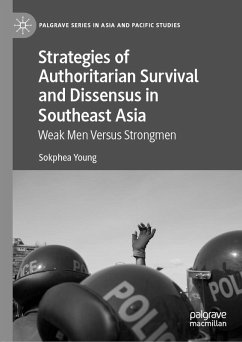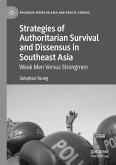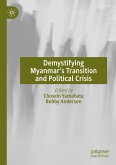This book analyses how authoritarian rulers of Southeast Asian countries maintain their durability in office, and, in this context, explains why some movements of civil society organizations succeed while others fail to achieve their demands. It discusses the relationship between the state-society-business in the political survival context. As the first comparative analysis of strategies of regime survival across Southeast Asia, this book also provides an in-depth insight into the various opposition movements, and the behaviour of antagonistic civic and political actors in the region.
"Drawing on dozens of interviews and government documents, the book not only chronicles but also compares two land struggles in different provinces of Cambodia ... . Strategies of Authoritarian Survival and Dissensus in Southeast Asia reaffirms the value of comparative political economy, an approach to the study of the region which has declined in prominence since the turn of the twenty-first century and deserves renewed promotion today." (John Sidel, Pacific Affairs, Vol. 96 (1), March, 2023)








